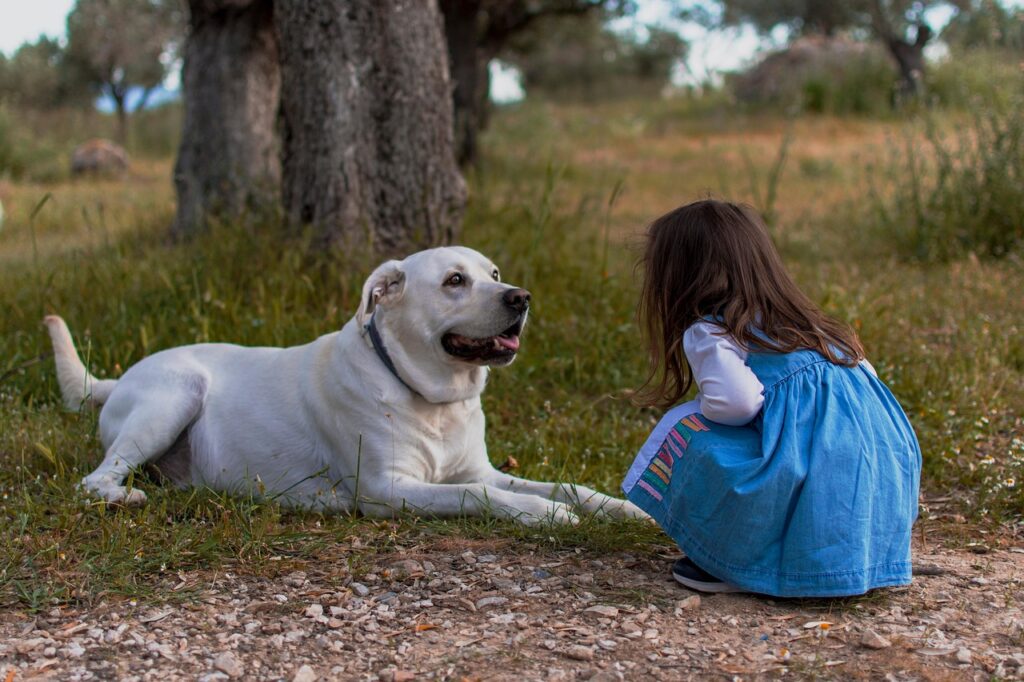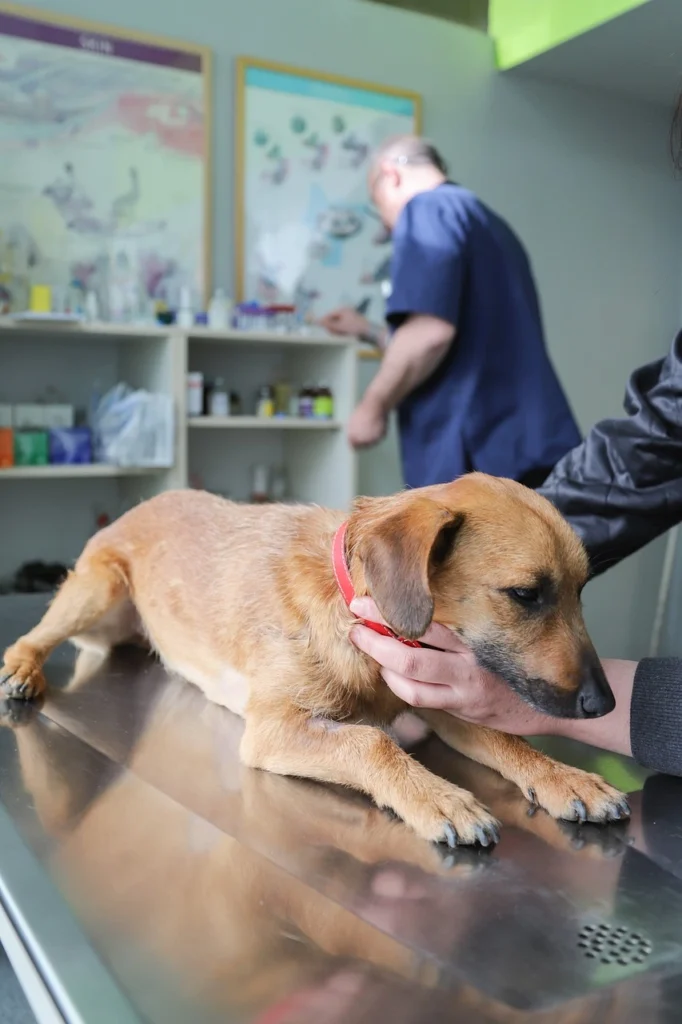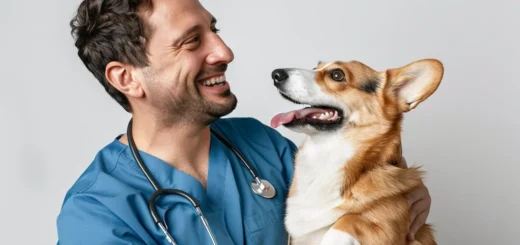Importance of Vaccinations for Pets

Among your primary responsibilities as a pet owner, one of your primary responsibilities is to ensure your pet’s well-being. Beyond daily care, nutrition, and regular exercise, one of the most critical aspects of maintaining your pet’s health is ensuring vaccinations. The importance of vaccinations for pets cannot be overstated, as vaccines are vital to protecting your furry companions from various serious and often fatal diseases. Whether you have a young puppy or kitten or an older adult pet, keeping them up to date on their vaccinations is one of the most valuable ways to prevent that they lead a long and healthy life.
This guide will explore the importance of vaccinations for pets. It will cover everything you need to know about the vaccines your pet needs. It will also cover the diseases they prevent, and how vaccinations contribute to your pet’s overall health and longevity.
Why Vaccinations Are Crucial for Pet Health
Pet vaccinations play an important role in your pet’s health and wellness routine, protecting against diseases that could otherwise have dire consequences. The importance of vaccinations for pets lies in preventing diseases and fostering long-term health by enhancing their immune system. Below, we explore the primary reasons vaccinations are crucial for your pet:
1. Protection from Serious, Preventable Diseases
Pets are protected against numerous diseases that might seriously harm their health by vaccinations. Some of these diseases are life-threatening and can cause life-long complications if not managed properly. Here are some of the most common diseases vaccines protect against:
-
Rabies: Rabies is a viral disease that attacks the nervous system and causes death when symptoms appear. It is also zoonotic, meaning that it can be transmitted from animals to humans. Therefore, rabies vaccination is essential for your pet’s health and family and community safety.
-
Parvovirus – This highly contagious virus affects dogs, particularly puppies, and can lead to severe gastrointestinal problems like vomiting, diarrhea, and dehydration. Vaccinating all dogs, especially those who spend time outdoors, is vital since parvovirus is deadly if not treated promptly.
-
Feline Leukemia Virus (FeLV): This virus weakens cats’ immune system, leaving them more susceptible to other infections. It can also lead to cancer and other severe health problems. Vaccination against FeLV is essential for all cats, particularly those allowed outdoors or in multi-cat households.
-
Distemper: A severe viral infection that affects dogs’ respiratory, gastrointestinal, and nervous systems. Distemper is contagious and fatal if not treated early.
Vaccines protect your pet from these and other severe diseases by preparing its immune system to recognize and combat the pathogens responsible. By vaccinating your pet, you’re providing them with the most effective defense against these dangerous diseases.
2. Prevention of disease transmission
Pets, particularly those that interact with other animals, are at constant risk of contagious diseases. This includes trips to the dog park, boarding kennels, or even outdoor excursions. Vaccinations play a significant role in protecting your pet and preventing disease spread to other animals in your community.
For example, diseases like kennel cough (Bordetella), feline distemper, and canine parvovirus can spread easily among animals in close contact. By ensuring your pet is vaccinated, you’re doing your part to prevent these illnesses from spreading and putting other animals at risk.
3. Boost Your Pet’s Immunity
Vaccines don’t just protect against a single disease; they boost your pet’s overall immunity. A vaccinated pet’s immune system is better prepared to fight future infections. Regular vaccinations ensure that your pet’s immune system is strong and capable of defending against new or evolving pathogens.
Additionally, certain vaccines can prevent chronic conditions that may be more difficult and costly to treat later in life. By vaccinating your pet on time, you’re helping them maintain optimal health for years.
4. Cost-effective preventative care
Vaccination is a cost-effective way to protect your pet from costly medical treatments. The cost of treating illnesses such as parvovirus, feline leukemia, or rabies after an infection can be high. In some cases, may be beyond your veterinarian’s capacity. On top of the treatment costs, these illnesses can require extended hospital stays, surgery, or long-term care, all of which add up quickly.
Vaccinations, on the other hand, are relatively inexpensive and can prevent the need for extensive treatment down the road. By prioritizing vaccinations, you’re investing in your pet’s long-term health while saving on medical bills.

Common Vaccinations for Dogs and Cats
Pet vaccinations are divided into two categories: core vaccines and non-core vaccines. Core vaccines are essential for every pet, while non-core vaccines are recommended based on your pet’s lifestyle, location, and potential exposure to certain diseases.
Core Vaccines for Dogs
-
Rabies vaccine:
-
The rabies vaccine is a legal requirement in many areas due to the severity of the disease. It is essential for all dogs, whether indoors or outdoors, as rabies is a fatal virus that can be transmitted through bites or scratches.
-
Distemper vaccine:
-
Distemper is a highly contagious virus that causes severe respiratory, gastrointestinal, and neurological symptoms. The distemper vaccine is typically combined with other vaccines for a more efficient vaccination schedule.
-
Parvovirus vaccine:
-
Parvovirus affects the gastrointestinal system and can lead to fatal dehydration and blood loss. Puppies are particularly vulnerable to this disease, so early vaccination is critical for all dogs.
-
Adenovirus (Hepatitis) vaccine:
-
This vaccine protects against a virus that causes liver disease and other systemic issues in dogs. The vaccine is often part of the combination vaccine that covers distemper, parvovirus, and adenovirus.
Core Vaccines for Cats
-
Rabies vaccine:
-
Like dogs, cats need rabies protection, especially if they go outdoors or come into contact with wildlife. Rabies can be deadly and transmissible to humans, so vaccination is vital.
-
FVRCP Vaccine:
-
The FVRCP vaccine is a combination vaccine that protects against three key viral infections in cats:
-
Feline Viral Rhinotracheitis (FVR): A respiratory infection that causes sneezing, coughing, and discharge from the eyes and nose.
-
Calicivirus: Another respiratory disease that causes mouth ulcers, conjunctivitis, and respiratory distress.
-
Panleukopenia, also known as feline distemper, is a highly contagious and often fatal disease affecting the gastrointestinal system and immune function.
-
-
Feline Leukemia Virus (FeLV) Vaccine:
-
Feline leukemia is a virus that weakens cats’ immune systems, leading to other infections and potentially cancer. This vaccine is especially relevant for cats that go outdoors, as they are more likely to come into contact with infected animals.
Non-core vaccines :
Non-core vaccines are given depending on your pet’s lifestyle and environment. For example, if your dog swims in lakes, they might need the Leptospirosis vaccine. In contrast, a cat that spends time in a multi-cat environment might benefit from the Chlamydia vaccine.

Puppies and kitten vaccination schedules
Vaccination schedules are tailored to puppies and kittens, as they need to build immunity gradually over time. These schedules help ensure they get the right vaccines at the right time to develop a robust immune system.
Puppy Vaccination Schedule (Expanded)
Vaccinating your puppy is critical to their long-term health and protection. Here’s a more detailed look at each stage of the puppy vaccination schedule, including the vaccines given and why they’re essential:
6-8 Weeks: First Round of Vaccines
The first round of vaccines is given in the early weeks of your puppy’s life. This is a vital time in their development as their immune system matures. At this stage, the following vaccines are typically administered:
-
Distemper: This is a highly contagious viral infection that attacks the respiratory, gastrointestinal, and nervous systems. Distemper is often fatal if left untreated, so early vaccination is essential.
-
Parvovirus: Parvovirus is one of the most common and dangerous viral infections in puppies. It affects the gastrointestinal tract, leading to severe vomiting, diarrhea, and dehydration. Parvovirus can be fatal, especially in puppies who haven’t been vaccinated, so this vaccine is a must-have early on.
-
Adenovirus: This vaccine protects against canine hepatitis, a viral infection that can cause liver damage and be life-threatening. Adenovirus is highly contagious, so vaccinating early reduces infection risk.
10-12 Weeks: Second Round of Vaccines
The second round of vaccines boosts your puppy’s immune system and provides enhanced protection as they grow. At this point, the following vaccines are generally administered:
-
Distemper (Booster): This booster shot strengthens your puppy’s immunity against distemper, reinforcing the protection provided in the first round of vaccines.
-
Parvovirus (Booster): Like the distemper booster, this second dose further protects against parvovirus, ensuring your puppy’s immune system is prepared to defend itself against the virus.
-
Leptospirosis: Leptospirosis is a bacterial infection that can lead to kidney and liver damage and can be spread through contaminated water, soil, or animal urine. Puppies that frequent outdoor areas or areas with standing water are at higher risk and should be vaccinated against this disease.
14-16 Weeks: Final Vaccine Round
The final round of vaccines solidifies your puppy’s immune system, ensuring they are fully protected against major infectious diseases as they mature. This round typically includes:
-
Rabies: Rabies is a fatal viral disease that attacks the brain and nervous system. It’s also a zoonotic disease, meaning it can be transmitted from animals to humans. Rabies vaccination is required by law in many areas, and it’s essential for protecting both your puppy and your community.
The final round of vaccines, including rabies, sets the foundation for your puppy’s long-term health. After these vaccines, you’ll need to continue with annual or triennial booster shots, as advised by your veterinarian, to ensure continued protection as they age.
Booster Shots and Ongoing Protection
After completing the initial vaccination series, both puppies and kittens will require regular booster shots. These are typically given annually or every three years, depending on the vaccine and your veterinarian’s recommendations. Booster shots are essential to maintaining your pet’s immunity against these potentially fatal diseases.
Regular veterinary check-ups will help you keep track of your pet’s vaccination schedule and ensure that they receive any necessary booster shots at the right time.
The Importance of Early Vaccination
Vaccinating your puppy or kitten as per the prescribed schedule is one of the most effective things you can do as a pet owner. This is to ensure their health and safety. Early vaccinations protect your pet from many life-threatening diseases, ensuring they grow into happy, healthy adults.
It’s also crucial to follow up with your vet regularly to monitor your pet’s health. This will ensure they receive the necessary follow-up boosters throughout their lives. Don’t hesitate to consult your vet if you have concerns or questions about your pet’s vaccination schedule.

Conclusion
Pet vaccinations cannot be overemphasized. Vaccinations provide essential protection against deadly diseases and infections, ensuring your pet’s long-term health and well-being. Understanding the key vaccines your pet needs and following the recommended vaccination schedule gives your pet the best chance at a long, happy, and healthy life.
As a responsible pet owner, staying up to date on your pet’s vaccinations is one of the simplest yet most effective ways to protect their health. Regular visits to the vet for vaccines, check-ups, and preventative care ensure that your pet remains safe from harmful diseases and can enjoy a fulfilling life with you.
FAQs
Q: Can my pet still get sick after vaccination?
A: While vaccines are highly effective, no vaccine offers 100% protection. However, they dramatically reduce the chances of dangerous diseases.
Q: Are vaccines safe for my pet?
A: Vaccines are extensively tested for safety and regulated by the veterinary authorities. Side effects are generally mild and short-lived.
Q: How often do pets need booster shots?
A: Booster shots are typically needed every 1-3 years, depending on the vaccine and your pet’s age. Your veterinarian will provide guidance on when boosters are required.
Q: Can vaccines cause allergic reactions in pets?
A: While rare, some pets may have mild allergic reactions to vaccines, such as swelling at the injection site or mild fever. Severe reactions are extremely uncommon but should be reported to your vet immediately.

















Recent Comments